Photos: The women who transformed Ukraine’s police force
At the end of 2014, Ekaterine Zguladze was assigned a task many had thought unrealistic: Implement police reforms in Ukraine, where citizens have associated the militsiya with corruption and inefficiency for decades. But Zguladze had accomplished something similar before—in her native Georgia, where she had led police reforms that earned her praise across the border—and made her as qualified as anyone to bring change to Ukraine’s police.
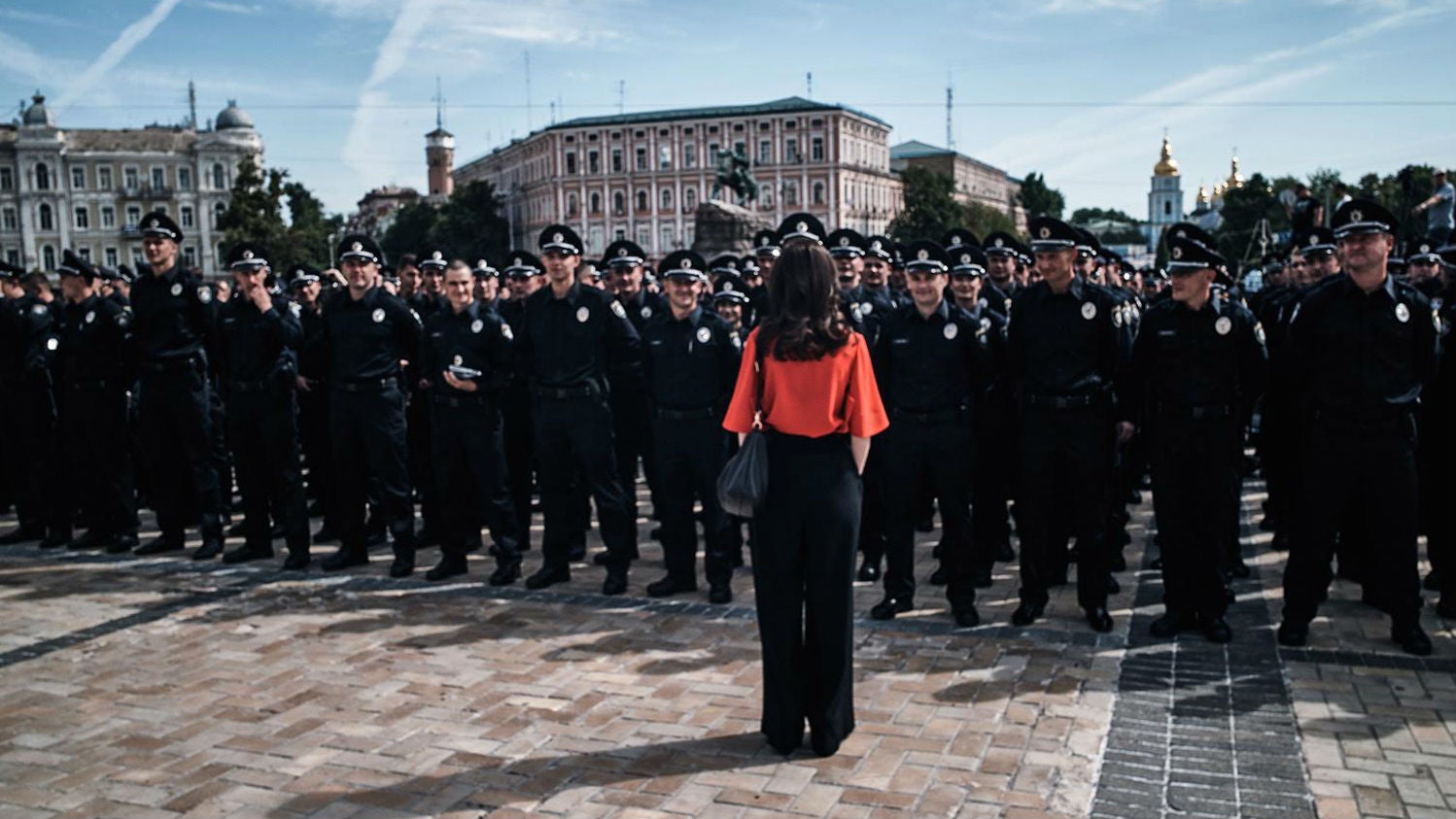

At the end of 2014, Ekaterine Zguladze was assigned a task many had thought unrealistic: Implement police reforms in Ukraine, where citizens have associated the militsiya with corruption and inefficiency for decades. But Zguladze had accomplished something similar before—in her native Georgia, where she had led police reforms that earned her praise across the border—and made her as qualified as anyone to bring change to Ukraine’s police.
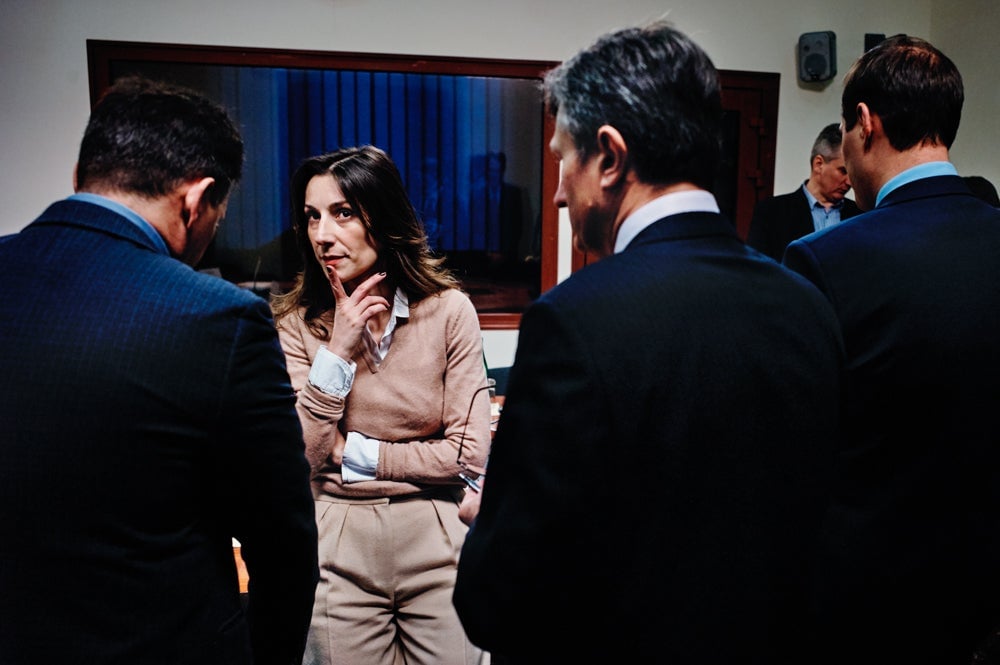
She was also the perfect face for the transformation to come: An attractive woman in her thirties, married to Raphaël Glucksmann, a writer and filmmaker son of the noted French philosopher André Glucksmann, she had the approval of the West and the pedigree of an ambassador of change.
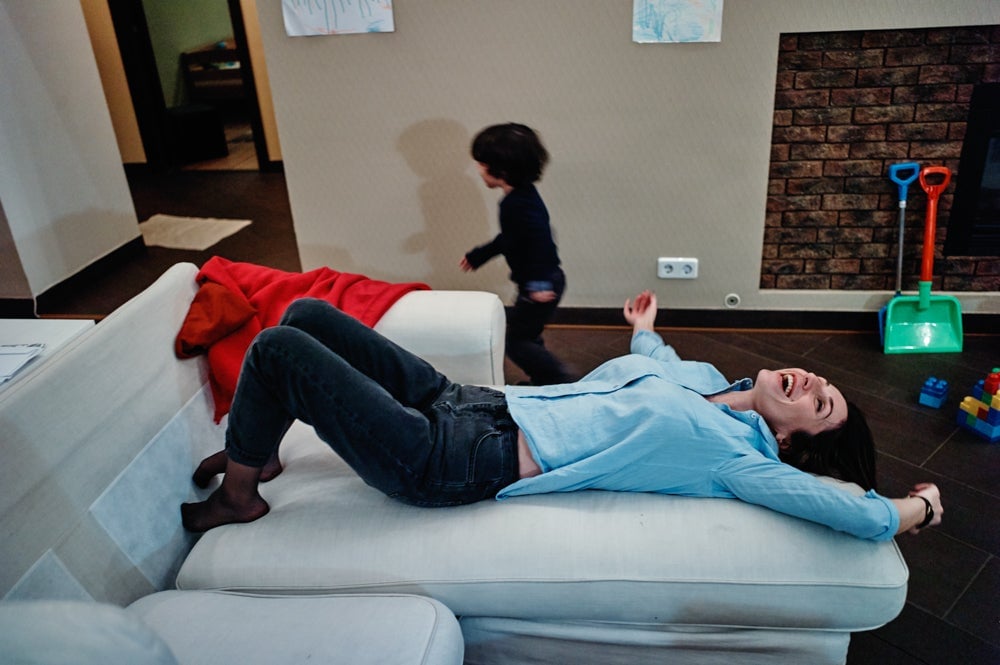
And so, Zguladze was given Ukrainian citizenship, a prestigious title—first deputy minister of internal affairs—and an extensive list of challenges to work on, a job that could take years to complete. The first, visible step was to recruit a patrol police to act alongside (and eventually replace) the existing police force—a new group that could inspire more trust than the incumbent police force. Beginning with Kyiv, the new patrol had to hit the streets by July 2015, which put the recruitment work under a tight deadline.
In two weeks, as many as 34,000 applied to the selection, and about 2,000 were chosen. Of them, 500 were women.
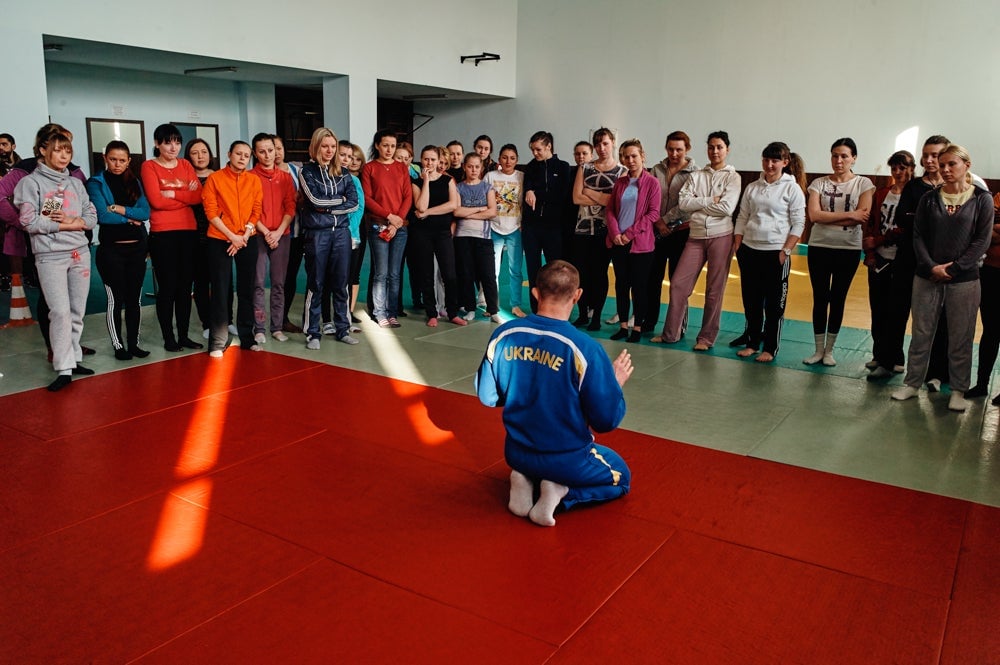
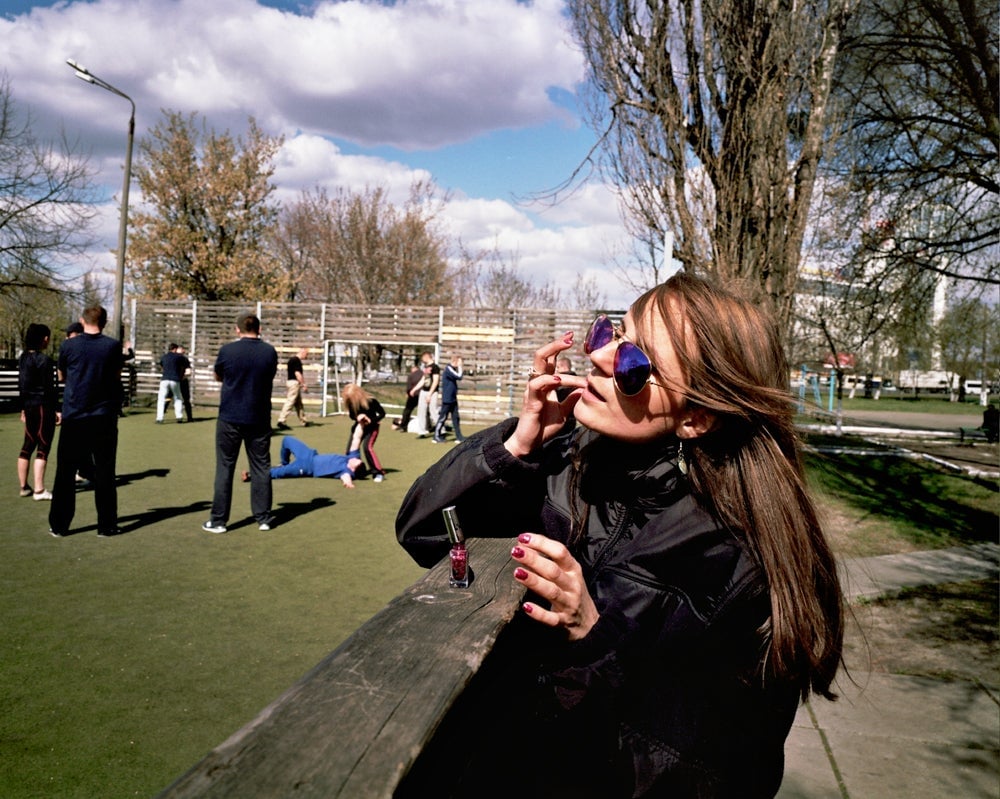
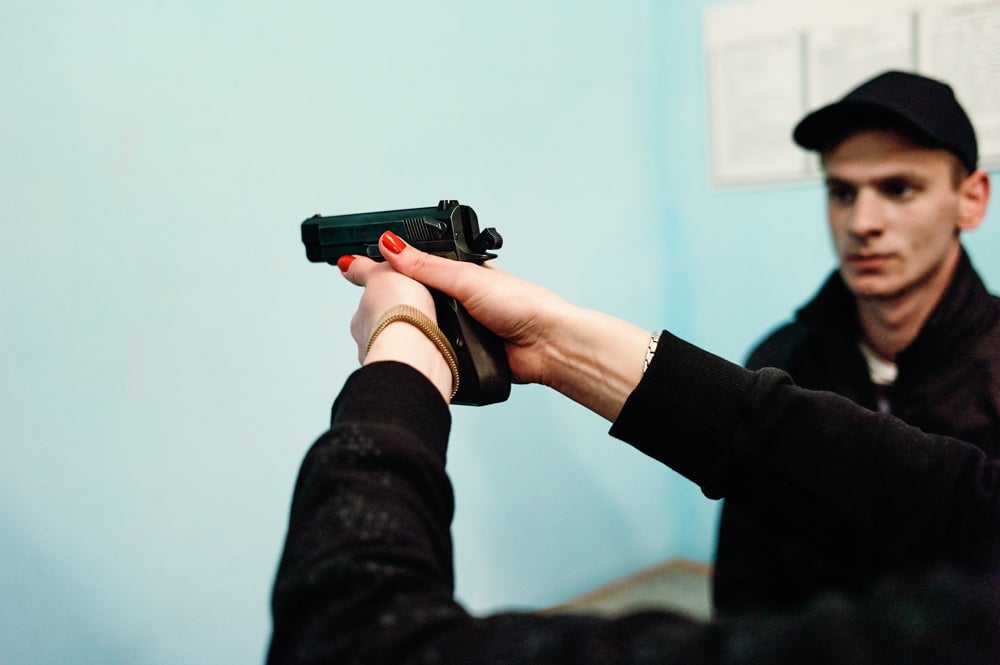
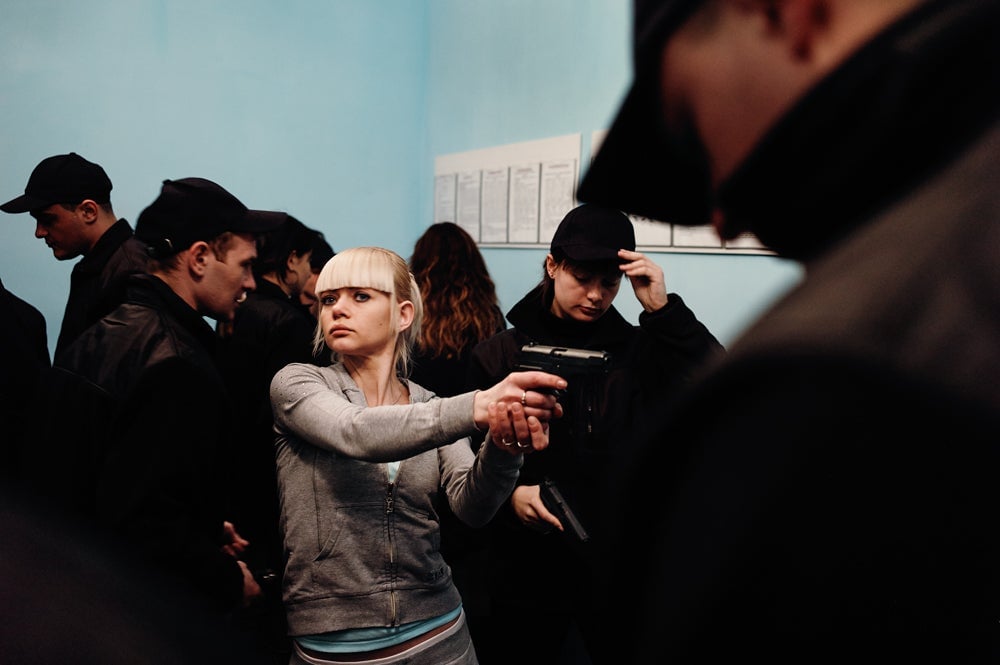

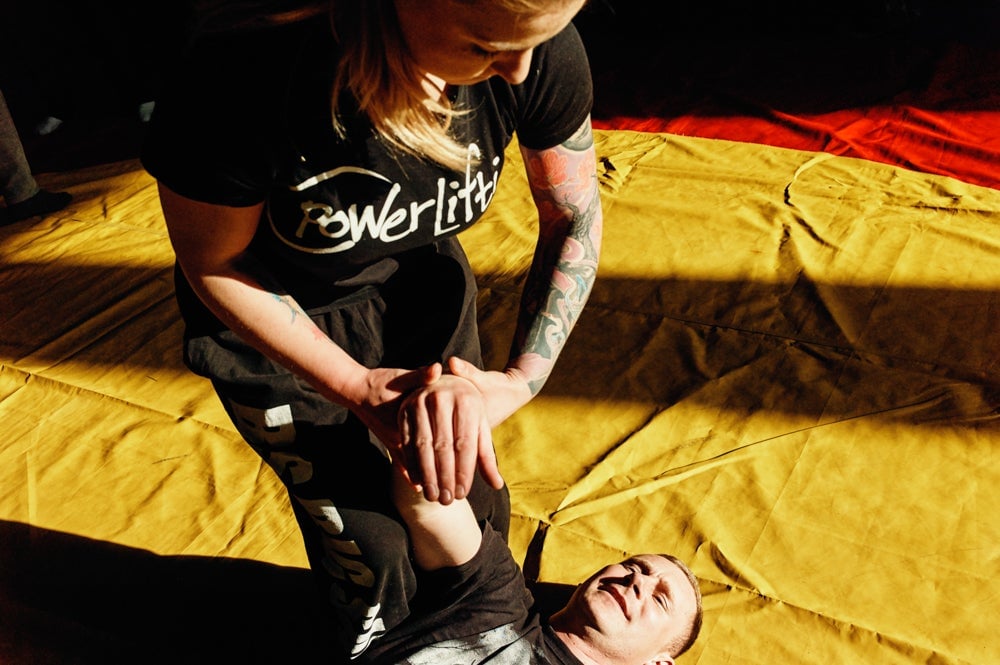
The US helped finance the training and trained the trainers; other countries including Australia and France pitched in, for instance buying part of the equipment. After 10 weeks—a fraction of the four years previously required to become part of the Ukrainian militsiya—the new patrol was ready to graduate and take service. These were young women and men, most of them highly educated, which likely related to the high unemployment and underemployment amongst those who entered the program.
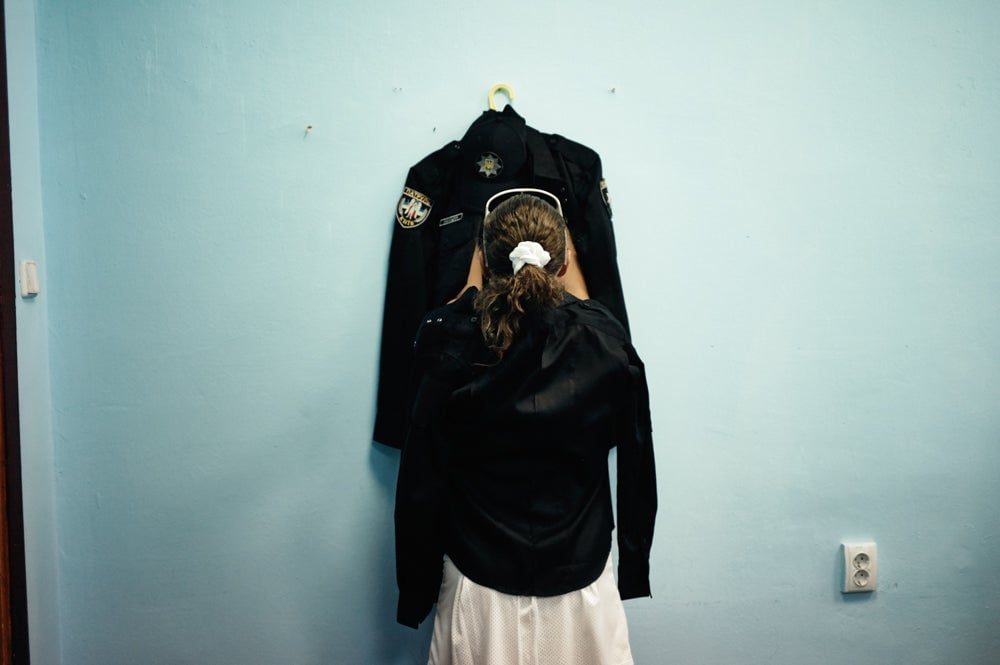
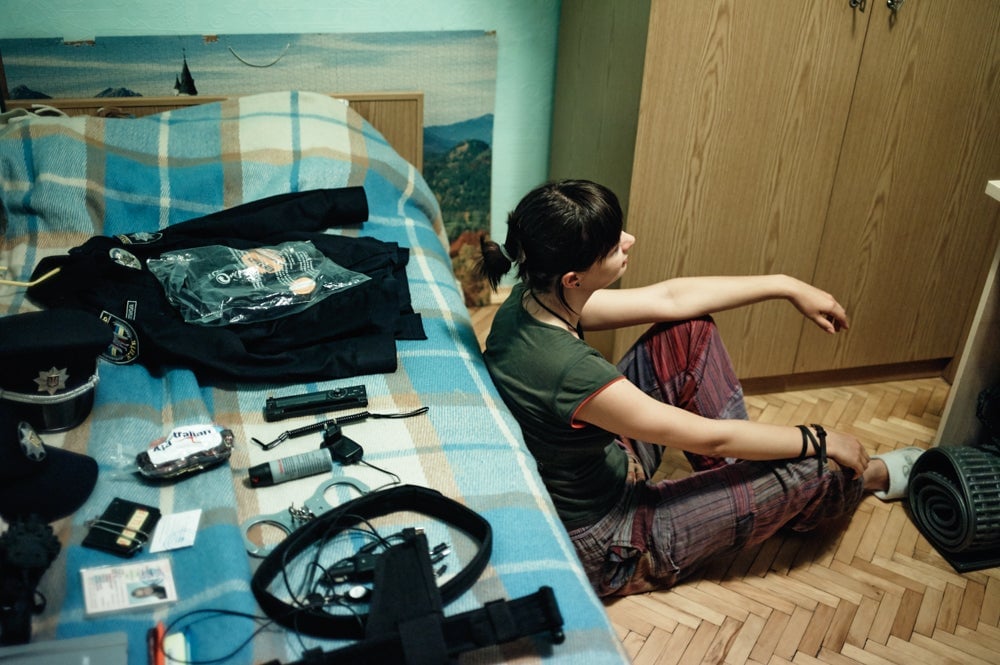
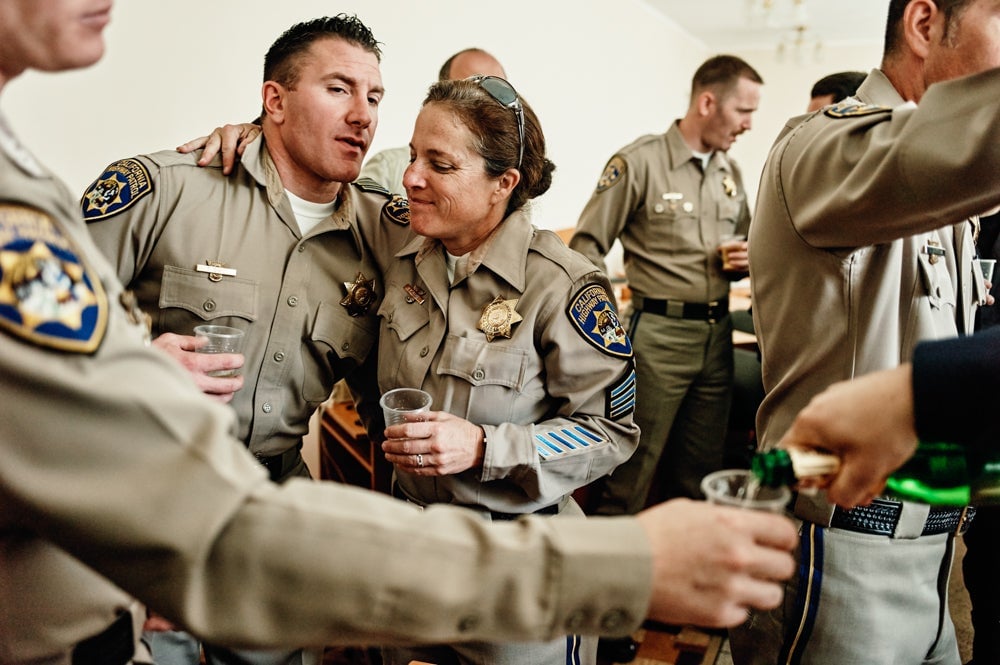
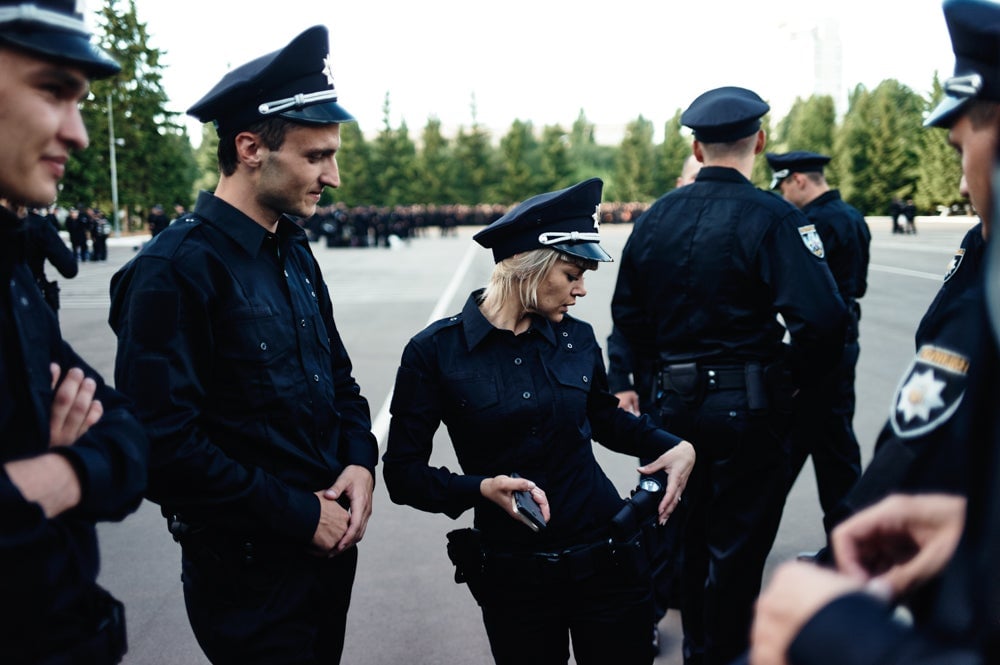
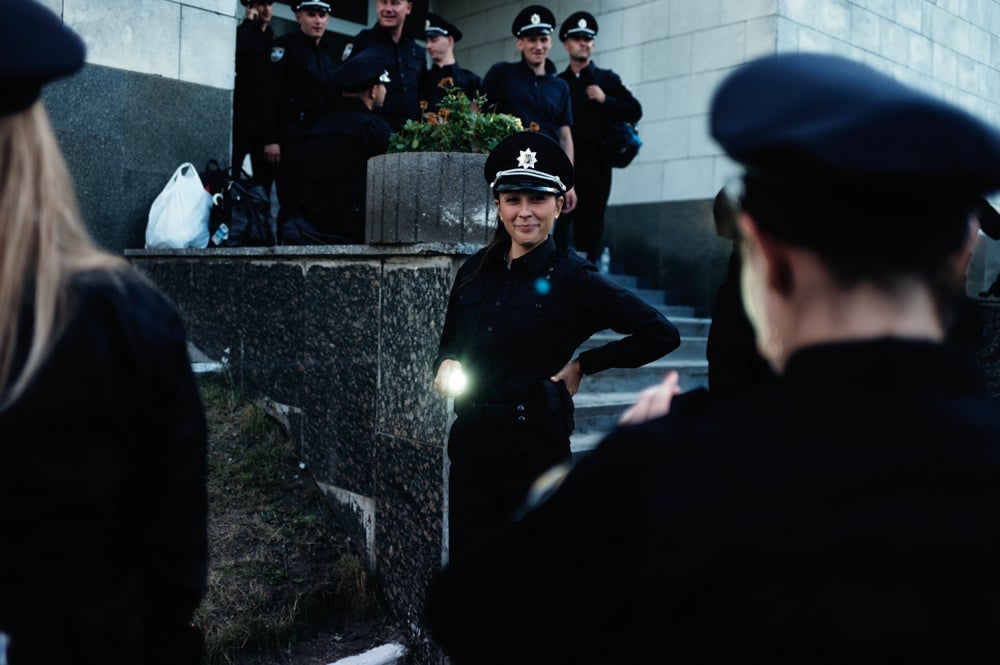
Photographer Misha Friedman, who documented the process from the beginning and was there when the new recruits started patrolling the streets of Kyiv, tells Quartz the public’s reaction was overwhelmingly positive. The policewomen, in particular, instinctively provoked people’s trust, and curiosity.
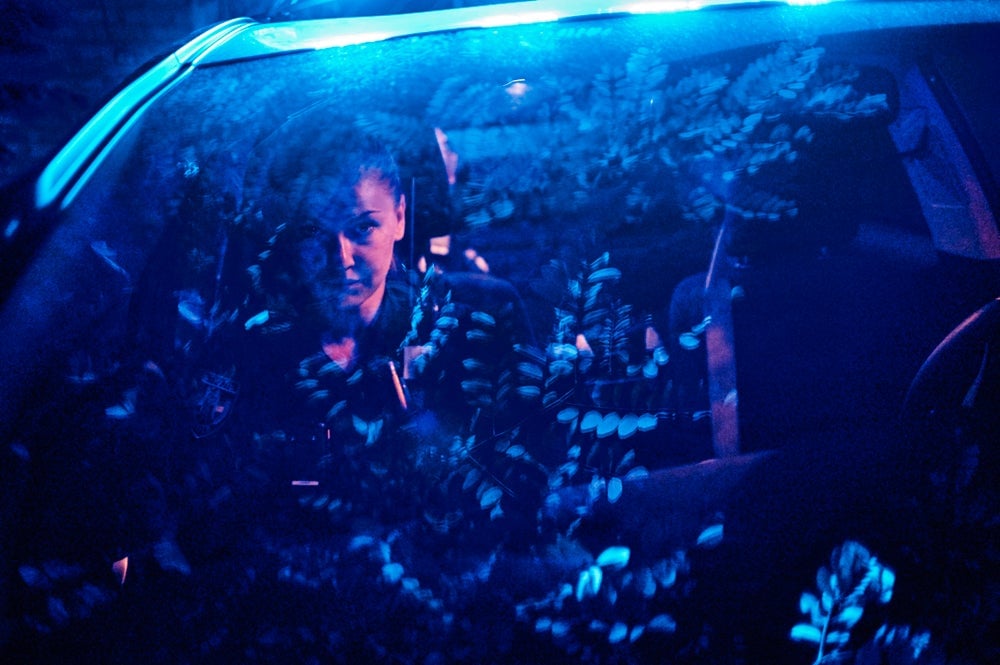
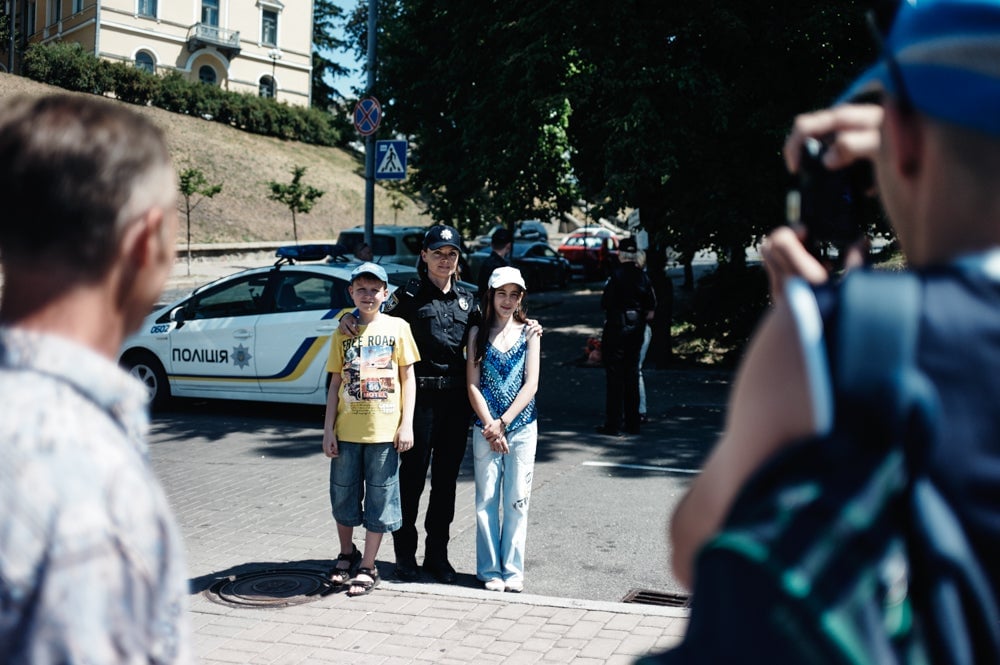
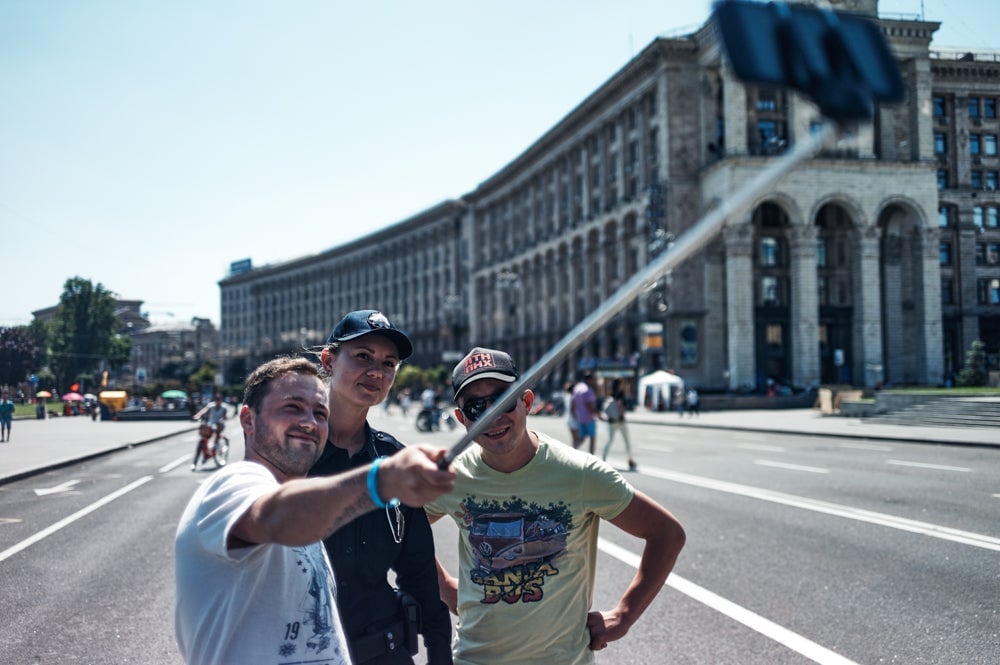
But novelty aside, the impact of the newly trained police force, even while the larger police reform is still in the making, has been sizable. Despite being objectively undertrained and with no experience to speak of, Kyiv’s 2,000 new police officers responded to more than 4,000 calls in the first three days of activity—about twice as much as the militsiya that they replaced had addressed just the previous week, Friedman tells Quartz. This, says Friedman, is likely due to a higher level of trust and, especially in cases of domestic or gender violence, increased comfort in reporting complaints to women, while the previous police force was predominantly male. As Friedman tells Quartz, the female members of the Patrol Police, who make up 25% of the force, have been paired with male officers; this means that about half the new patrol teams have a woman. And that makes the likelihood of encountering a female officer in Kyiv one of the highest in the world.
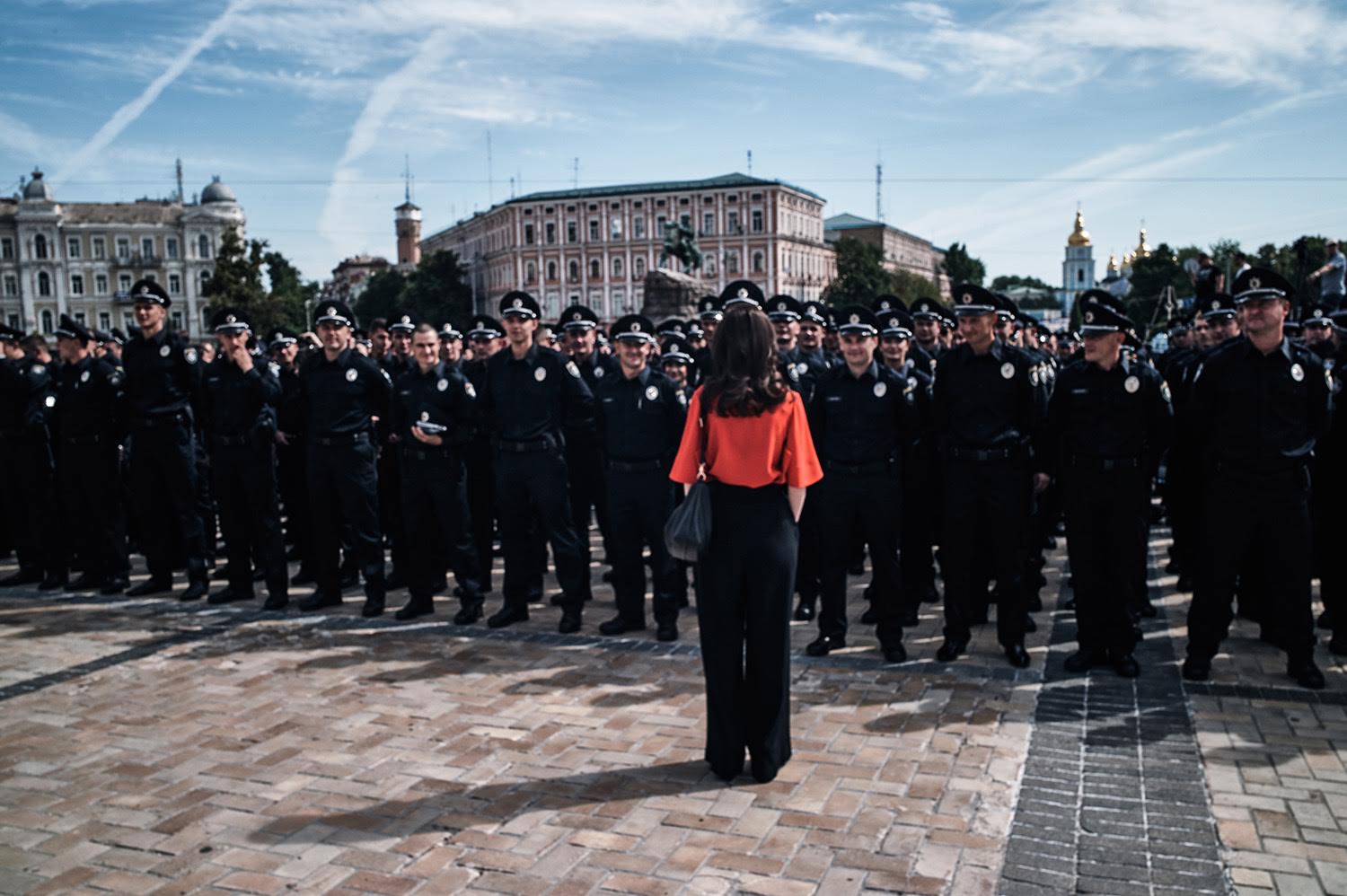
The Patrol Police is now being recruited in other cities, and while this is just the begging of Zguladze’s reform—the most superficial layer, in a way—it’s definitely a promising beginning.
Reporting for this story was partially funded by the Pulitzer Center.